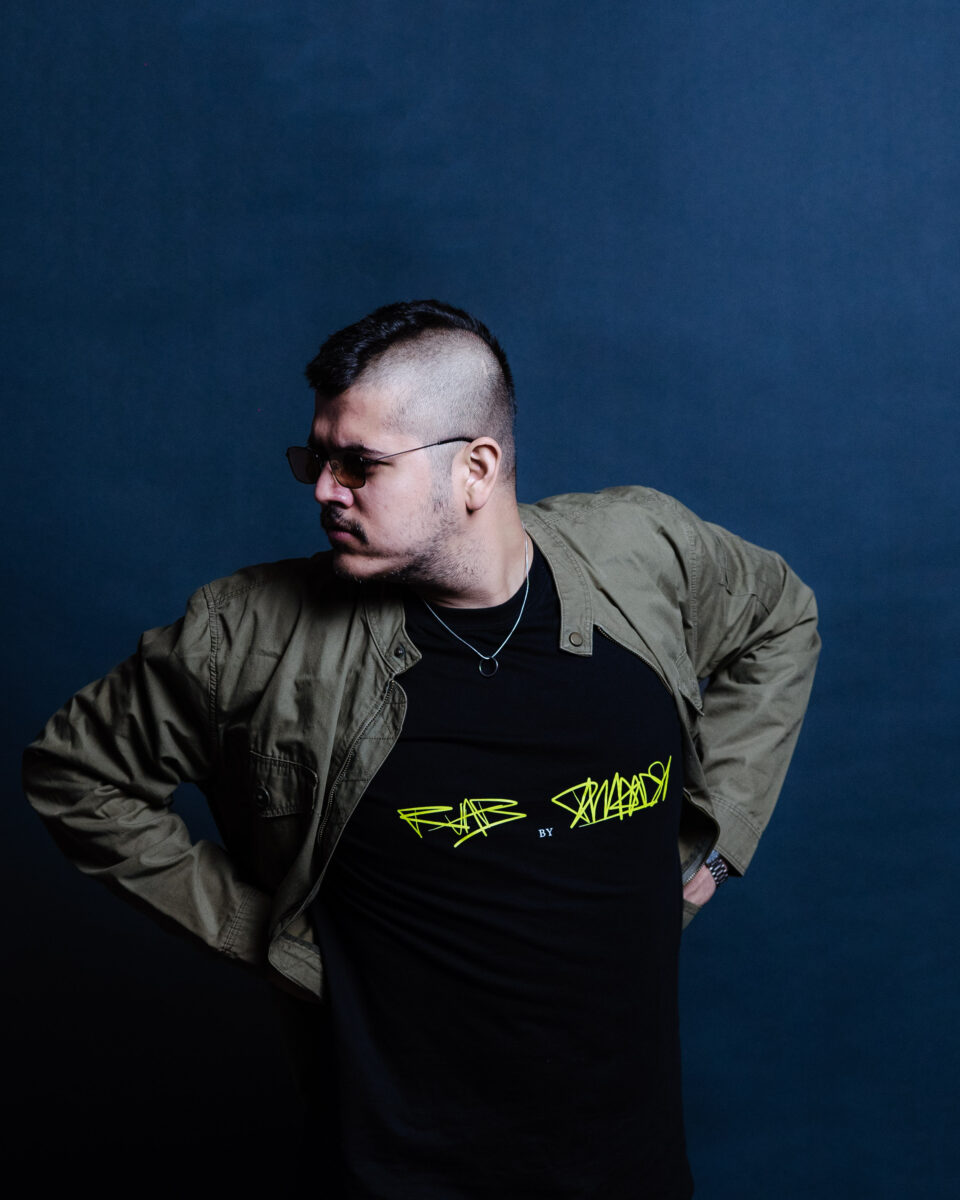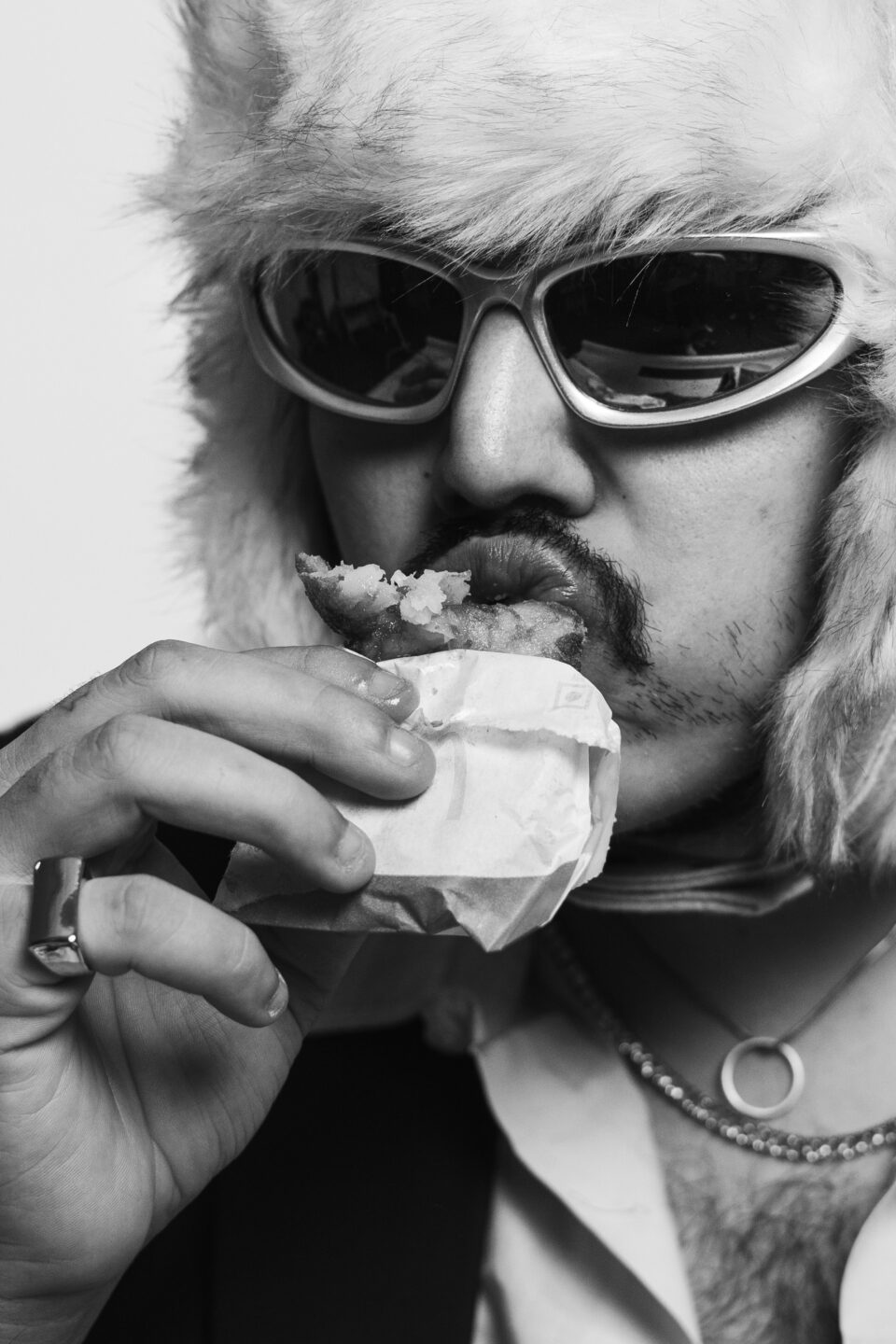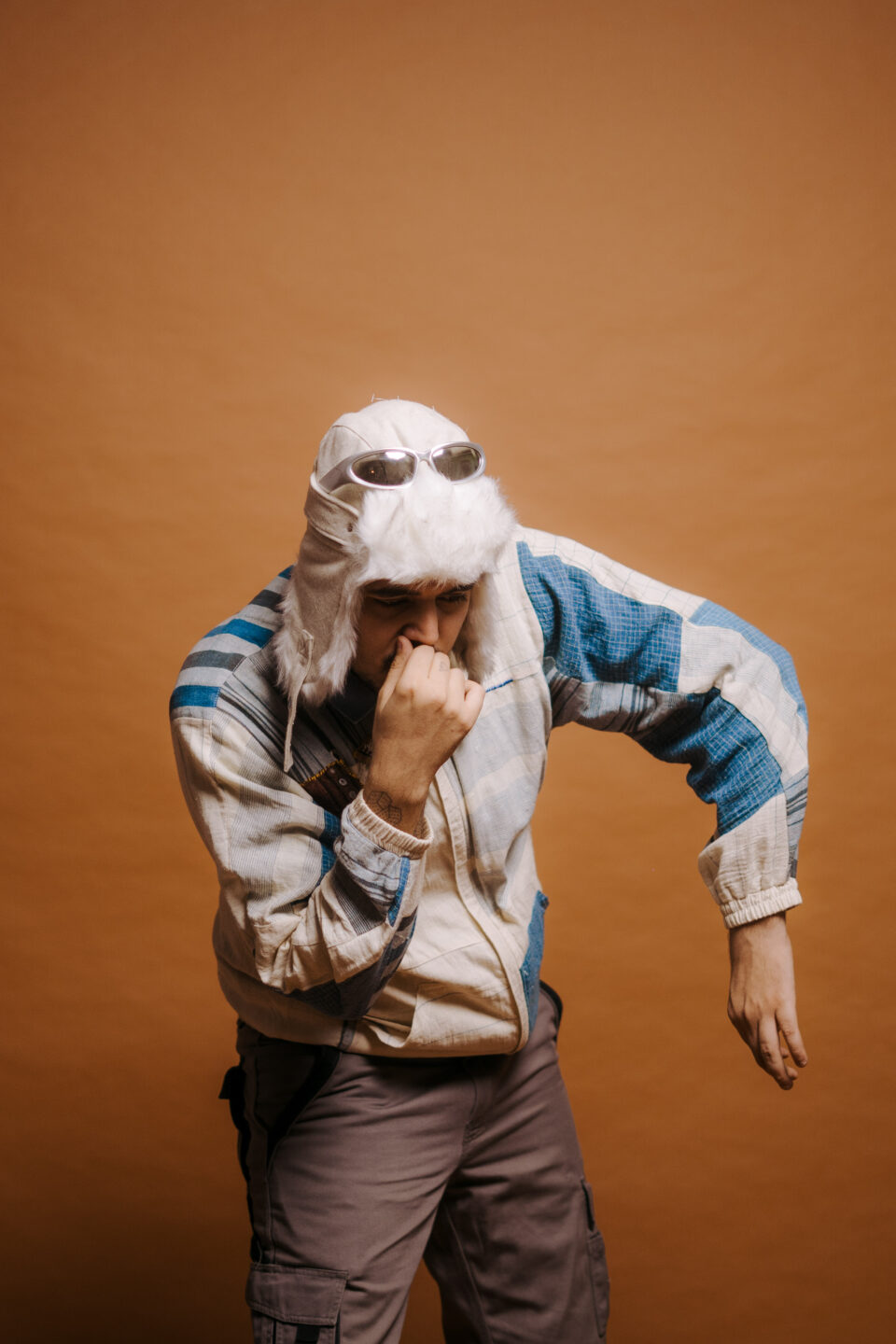
Dhanji
Ahmedabad has found its funk
Dhanji, a rapper who has gained significant attention within underground hip-hop scenes nationwide, has engineered his own path to fame, money, and notoriety (pun very much intended).
Describing a young musician as possessing an “old soul” might sound like a cliché reserved for those with significant life experience, however Dhanji is redefining that notion. Imagine a youthful Bobby DeNiro fused with the lyrical prowess of Shawn Carter, infused with a touch of Thaltej charm, and there you have Dhanji. His debut LP, Ruab, released in 2023 with influences from motown and funk, is arguably one of the most innovative projects of the year, showcasing the talent and foresight of this 25-year-old rapper.
Read our interview with Dhanji below.
Rolling Stone India: Who is Dhanji and how is he different from Jayraj Ganatra (real name)?
Dhanji: Dhanji is an outlet, Dhanji is a project. The sense of self as described by me. Meri zindagi hai (it’s my life). I found this as my outlet, and it helped me understand more about who I am as a person.
In Reddit AMA conducted by r/IndianHipHopHeads someone asked you why you started making rap music and you said, “to express myself within a system”. What did you mean by that?
Rap music is a form of expression, broadly speaking. Like any art form ever, it has a system; a set of rules that you can adhere by and break sometimes. It’s a system that’s been laid out across cultures, across time. Yeh system hai jisme jo bolna hai bol sakte hai (This is a system where you can say whatever you want). Rap music is me expressing myself through it.
In that same AMA, when asked about what art inspires you, your answer was fantastic. You said “pussy, the internet, Louis C.K, LSD, Dostoevsky, and ambition”. Walk me through some of these.
[Laughs] kya bolu abhi (what do I even say?). I hate idolizing artists to be honest. Aadhe toh madarchod hote hai (half of them are mother*ckers). But all things said and done, Louis CK is an example of someone who tried his best to perfect his form and that’s what I strive to achieve always. Then LSD, pretty standard shit you know. Opened my third eye. The rest were just major motivators to force me to express myself.
Take me through what it was like growing up in the city of Amdavad (Ahmedabad) and finding your way in a local industry that you helped create. What was the experience like?
“Growing up in a city like Amdavad – zyada chamak-dhamak toh tha nahi (there’s not a lot of shiny things), you know that. Nothing substantial really, when I was growing up in 2004/5/6 onwards – it was pretty sparse and rural. Whatever was happening was happening. The city grew with us. The ruling party had a hand to play in it, samajh rahe ho (you know what I mean?) Good or bad, it made us who we were. With my 2023 debut LP RUAB, I did lock in and worked out a lot of what I wanted to. But kehte hai ki gadda hai – gir jaaogey, (they say that when there’s a ditch, you’ll fall into it) when you try to encapsulate what your “sound” is. I am still growing and evolving as an artist. What I tried to remain constant was authenticity. The reason why Amdavad fit so intricately well with the album was because I never forced it. It’s just what naturally fit. It spoke to me even when I didn’t intend on it.

How did Danny Brown, Funkadelic and Ice Cube become some of your biggest inspirations for your album Ruab?
Dhanji: “F***, I don’t know man. I honestly wish I had answer to why funk. Going just farther back, jab yeh moments aate they, jisme main inke gaane sun raha hoon, naya kuch discover kar raha hoon, (when there were moment where I’d listen to their songs, I’d discover something new) some of the songs just clicked you know? I’m listening to Ice Cube, I’m listening to shit that I really dug. It made a really strong impression on me. I started asking ki “bhenchod uska sample kya hai?”(f*ck, what’s that sample? I just wanted to trace the lineage as far back as I could. Fir laga ki yahich hai (Then I thought this is it) This is what I really like. I love classic shit. I love the horns, the acoustic drum grooves – shit like that feels really classic to me. The album is a classic right out the gate, no matter what people say.
How did elements of a legal notary as the album artwork come to be?
“Personal life shit affected that for sure. Growing up, I saw a lot of bureaucratic things just happen around the lives of the people around me. The good, the bad, the ugly of it all. It’s a reflection of the 25 years I’ve been in this city. The paperwork, the “sarkaari kagjat” of it all was because my family has always been involved with the law. Mostly on the wrong side of it. Growing up, seeing my daddy go to jail.
“Baapu bolta office jaakar job kar // aur who khud officer quarters ke bahr maarta officers ke quarter”.
“In classic Dhanji style, I’m not going to explain it but I’d rather let people interpret what they must, you know?”
Talk to me about DHH (Desi Hip Hop). What does it mean to you? How have you, along with contemporaries like Bagi Munda, Arpit Bala, Siyaahi, Gravity, etc worked to develop the identity that it holds?
“When I picked up the pen to write Hindi-rap music, I wasn’t even thinking about “DHH” (Desi Hip-Hop) to be very frank. But this is my house type of shit, you know? Chota hai, thode kaanch futele hai, light nahi chalti, but mera ghar hai (it’s small, some of the windows are broken, the electricity doesn’t work, but it’s my house). Desi Hip Hop is an integral part of what I do and I represent it, whether I chose to or not. And Desi means so much more than just one language or one country – there’s Nepal, Pakistan, Bangladesh – the whole subcontinent. I’m with it bro. I’m with the idea of it.

Do you often get star struck? How do you envision yourself fitting in an industry that is populated by some of the biggest stars?
“That’s a tough one. Yes, I do get star struck. When I first met Raga for the first time, I got star struck – he’s someone I really really look up to. Now I get to work with him, make a song with him. About the industry though, I’m still trying to figure it out. I can’t give a definite answer you know? I have some ideas about what I should do – what the industry should do – I don’t know. But me as an individual, as an entity, representing however many people I do, close or far away, I know what I should do. I have certain ideas that I’m trying to execute for sure. I’m genuinely trying to shake things up in whatever way I can.”
Do you believe that the industry you are working in is overly affected by ideas of the past? Where do you see the future of Indian music – specifically hip hop? Is there room for innovation?
Dhanji: “I’m not trying to be pessimistic in this interview [laughs] but I don’t know half the time. What you said is correct – our industry does sometimes get stuck in the past. Indian Hip Hop is still a little volatile. It can go anywhere in any direction. Anyone who is trying to make something substantial and create an impact – whether it’s rappers, producers, journalists, artist managers, gig promoters – will keep their shit alive. I don’t know if the industry is primed for it yet, but everyday me and my team try to do the same. Me, Saqlen [my manager], my company Thaltej Publishing Co., we all work day in and day out to figure out. It’s not one deal, one event or one song. It’s that whole one-step, two-step, three-step game.
On distributing physical CDs at the Riverfront in Ahmedabad:
“Bro I’m an old soul, I love classic shit. From 50 Cent to Rakim, everyone went through that same grind. That path went a bit obsolete with new technology. But I always saw value in that and I will always push to promote more physical media. This is a big part of the work we do at Thaltej Publishing Co. – maybe it’s a bit contrary, challenging the norms, even outdated – but we’re doing it because we find value that’s been lost.

What are your thoughts on the integration of newer technologies, like artificial intelligence, in music?
Dhanji: “That’s a heavy question. I am a f***ing nerd to be honest. I read research papers, I try to be up to date with new advances in the AI space. It is humanity shifting shit. It’s unreal. I spend 2 hours a day trying to learn more and more. To this day. I’m very much with it, but I know I’m in an artistic field and it’s messing up the rules and frameworks that have been set forever. Nothing has challenged us this much, to this degree, ever. It’s a wild f***ing time and I’m still trying to grasp it. One thing’s true though, art is still art and technology should always support it. If you’re an artist in this day and age and y’all are not thinking about this shit, you might just become obsolete too.”
What’s your message to audiences that may not know who you are?
Dhanji: “For the people out there and everywhere: taking risks is back. Giving a f*** about shit is back. So back.”




